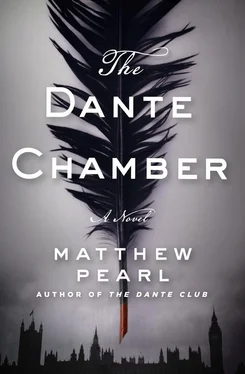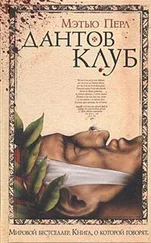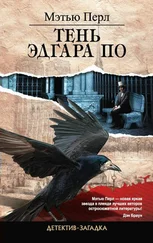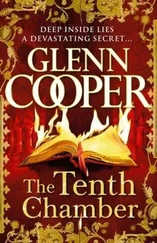The fact is, she’d come to hate Dante Alighieri.
He had been like a banshee, his screech always audible but not examined. For years, she read Shakespeare, Milton, anything but Dante. But living in the Rossetti household made her an unwitting expert and, over time, a reluctant appreciator. Dante had formulated the most perfect romance, a love so pure for a woman that it guided his entire life, even after Beatrice’s death. Especially after her death.
Dante, ensnared by politics and hatred on earth, could only be disentangled from his past and renewed for the future by exploring the world of desperate ruin (Hell, or Inferno), the world of pain and hope (Purgatory), and the world never seen by mortal eye (Paradise). For Dante, simply put, Beatrice connected our world with God, the essential role of an angel whose form we know but whose mind and heart transcend our understanding. Centuries could not exhaust the wonder, sympathy, awe, and admiration that Dante left behind by responding to all that was lovely and terrible.
Christina never stopped being wary of the horrors of the Florentine’s punishments. Gazing down a precipice fascinates the gazer enough to think of what a shattering fall must be like. So it was with sin and retribution. She had to put aside those reservations. She had to inhabit Dante’s vision so completely that she could pull Gabriel out from inside it.
Christina saw herself, as though in a dream, as a girl around six years old. Such a louder, wilder being than she’d become.
There. There she is.
They are at her grandparents’ home in Holmer Green, surrounded by fields. She finds her father under a reading lamp, though the day is sunny and beautiful and everyone is outside. She is caked in mud and tells her father of a dead mouse she found that she buried in a mossy bed. The professore laughs and laughs, compliments her rosy cheeks and sparkling eyes, her face like a little moon risen, tells her to return to playing “like a butterfly among the flowers, and when I see you next, my impertinent darling, vivace Christina, you shall be prettier still.” He sneaks her a fig, which he keeps hidden from Frances, who doesn’t approve of sweets for the children.
She returns to the spot she marked where she buried the mouse earlier that day. She slowly moves the moss coverlet, and a black insect squeezes out. She flees in horror.
She scurries inside, but they are no longer at Holmer Green. They are in their little house on Charlotte Street in the city. By her eye level entering the room, she is ten years old, eleven maybe, as she runs to the grand desk over which her father is slumped, long locks of white hair spilling down his shoulders. She begs him to look at a drawing she had made of a wombat at the zoo, when turning around the professore scolds her for interrupting his train of thought — something about discovering a pattern inside Dante’s medieval stanzas that would spell the final doom for the modern papacy. “What do you think, young lady, could be more important than that? Pull those curtains back, the sun stings me. Do you know not the rules to follow, after the many times I’ve announced them? If you are ever to be wanted as a worthy man’s wife, you must learn obedience, deference!”
The girl scrambles upstairs, weeping so hard she can’t breathe. She grabs a pair of scissors and rips up her own arm, watching the blood rise up in large drops and collect into a unified stream, dulling the sting of her father’s rebuke. The tears dry up as the blood flows.
Gabriel’s footsteps follow, and he pulls his sister — now in the dream-vision five or six years older, slipping from a girl into a young woman, even as he metamorphoses into a strapping buck — pulls her into one of his strong shoulders. Forget Dante, forget their father. Father’s an exile from his home country, says the older brother. He shuns daylight, and makes a goblin of the sun. He has lost his people, and so have we; we must protect each other to survive.
“Miss Rossetti,” Browning called out from inside. “I have Dr. Holmes with me. My dear, are you unwell?”
Christina stood in the wintry sunset on the terrace, gripping her arm as though the skin around the old wounds had ripped wide open.
The flat center of his bare foot digging into the tip of the ladder, his other foot balancing in the air, his large body wobbled in rhythm with the motions of his hands. He assailed the wall with paint, thrusting his brush back and forth, shouting in frustration from time to time, and throwing the brush into the air. He would then reach for another one, certain that this brush would meet the unrelenting, intoxicating demands of his vision. Few of the techniques he used would be sanctioned by the art masters of London, but it was hard to quarrel with the beauty and power of the results so far.
As the painting progressed, the massive chamber began to transform from an empty, useless place, an echo of soulless monotony, into a space made for this fresco, rather than a fresco made for the space. Dante Gabriel Rossetti struck and swiped, had tantrums lying down, naps sitting up, overturned his easels, then resumed creation.
I still hope to be an outcast from humanity one of these days , he recalled saying to someone — perhaps it was Robert Browning. Browning’s solicitations and attention toward him sometimes turned into spying. He wondered if Browning could understand what all this was about. An announcement. A declaration. Browning — of all men, he who held Elizabeth Browning in his arms as she breathed her last breath — must have understood finally that death and art were inseparable.
Verses he had composed floated through his mind, giving him a rhythm to paint by.
Could I have seen the thing I am today!
The same (how strange) the same as I was then!
Gabriel went to work again. The image, as it came to fruition, showed a variety of tableaux, a panorama of living nightmares — one depicted a man crushed by the weight of stone on his shoulders, another revealed a woman suffering with eyes sewn closed. The solitary painter paced and stomped, raged at the sunlight streaming in to blind him, punched the wall here and then there, filling the place with clouds of dust. Then he’d return to his labors.
There was an incomplete portion in Gabriel’s panorama in progress, a painting of a cloud of smoke, dark as night. This, the next step, the next revelation, the next ledge to reveal that made the depths of Hell timid by comparison: the terrace of the Wrathful.
A few piers down the harbor from where Oliver Wendell Holmes disembarked — only half an hour later going by the nearby clock tower at Salisbury Dock — another American stood tall on the deck of an ocean liner. The three-masted Daniel Webster had just made its arrival. The visitor in question brought to England one sole-leather trunk, two gun cases, and the mission of a lifetime; a mission combining literature, life and death, and a great fortune.
Simon Camp, a scowler from birth, scowled over the railing at the dirty masses of people along the docks. The Pinkerton detective agency had cut ties with him before, when he was convicted for extortion and assorted peccadilloes, though Camp got a laugh by regaining his original position through more extortion after his release — extorting old Allan Pinkerton himself. But now the Pinkerton detective agency had struck him from the payroll once and for all after discovering he was the author of four anonymously published twenty-cent pamphlets about cases he’d investigated. Camp decided not to fight this latest dismissal. The job hadn’t been worth the bosh that he dealt with most of the time, and he preferred relying on his own judgment than another man’s any day of the week.
Читать дальше












